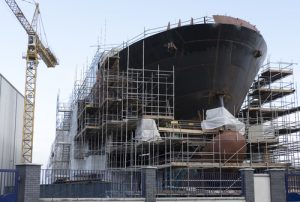
U.S. Sen. Roger Wicker (R-MS) recently sponsored a bipartisan, bicameral bill that would require a certain percentage of natural gas and crude oil exports be transported on American-built and United States-flag vessels.
Sen. Wicker on July 18 introduced the Energizing American Shipbuilding Act of 2019, S. 2167, to strengthen the nation’s domestic shipbuilding, advanced manufacturing and maritime industries. The same-named H.R. 3829 was introduced on July 18 in the U.S. House of Representatives by U.S. Reps. Brian Fitzpatrick (R-PA) and John Garamendi (D-CA).
“Maintaining a strong domestic maritime industry is essential for our national defense,” Sen. Wicker said. “This legislation would strengthen our shipbuilding industry, support American maritime jobs, and ensure the United States has enough American-flagged, crewed and built ships to transport its growing oil and natural gas exports in times of conflict.”
If enacted, the bill would require that U.S.-built ships transport 15 percent of total seaborne liquefied natural gas exports by 2041 and 10 percent of total seaborne crude oil exports by 2033, among other provisions, according to the bill’s text.
“Our geopolitical rivals have invested heavily in their shipbuilding capacity and the U.S. should keep pace,” said Sen. Wicker.
S. 2167 has been referred for consideration to the U.S. Senate Banking, Housing, and Urban Affairs Committee, while H.R. 3829 is under review by both the U.S. House Energy and Commerce Committee and the U.S. House Foreign Affairs Committee.



